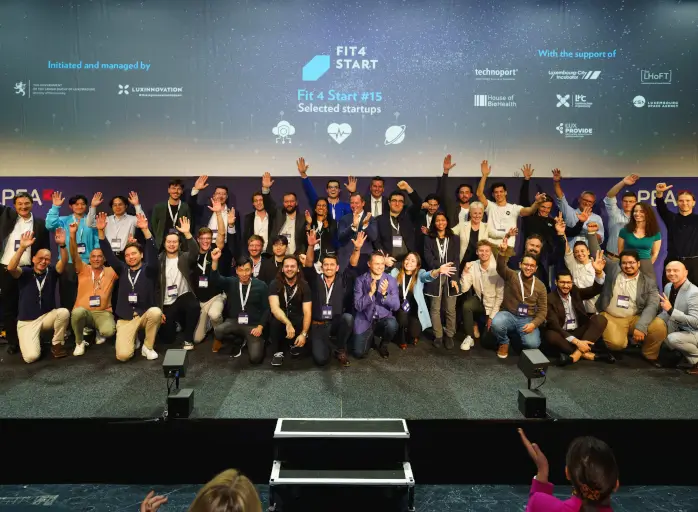

Making the agricultural sector more resilient
An unprecedented agreement between Luxinnovation and the Ministry of Agriculture, Viticulture and Rural Development aims to support and strengthen the competitiveness and sustainability of the agri-food sector through innovation.
 Jean-Michel Gaudron
Jean-Michel Gaudron
The development of resilient and diversified agri-food chains is among the pillars of economically viable, socially equitable and eco-responsible agriculture. It is based on this principle that the Ministry of Agriculture, Viticulture and Rural Development and Luxinnovation signed a three-year partnership agreement last July.
The agreement, the first of its kind between the two institutions, aims to support the agri-food sector and enhance its competitiveness and sustainability through innovation, digitalisation, and collaboration with research players through public-private partnerships.
Upstream and downstream
In the context of this cooperation, Luxinnovation will work on the value chain, both upstream and downstream of the agricultural sector. "We have three objectives," explains Claude Hostert, appointed Senior Advisor - Agrifood at Luxinnovation, responsible for coordination within the agency and support for various innovative national initiatives in the sector. "These objectives include helping agri-food companies become more competitive and sustainable, developing resilient and diversified agri-food (and non-food) value chains, and promoting the transformation of the agri-food sector through innovation."
We are already working on pilot projects (Claude Hostert)
To achieve this, the national innovation agency relies on a wide range of services, from supporting innovative national initiatives to identifying and initiating public-private collaborative projects, providing information on multiple national and European funding opportunities, and facilitating direct connections between private and public actors through collaborative initiatives.
"We are already working on pilot projects aimed at exploiting synergies between greenhouse food production and other economic activities in the surrounding areas. We also coordinate an inter-ministerial working group on agri-food, which includes the Ministries of Agriculture; Economy; Energy and Spatial Planning; Environment, Climate, and Sustainable Development; and Labor, Employment, and Social and Solidarity Economy," Mr. Hostert adds.
Outreach
The potential direct beneficiaries of this cooperation between MAVRD and Luxinnovation include transformation, distribution, wholesale, and retail agri-food companies; bioeconomy and related industries; as well as suppliers of agri-food products and services. Among the indirect beneficiaries are primary agricultural producers, the research sector, and advanced technology companies active in aquaponics and vertical farming.
To inform the entire industry about the relevance and prospects of this cooperation, Claude Hostert and Serge Medinger, responsible for innovation matters at MAVRD, have begun an outreach effort. They will meet with professional chambers and various agri-food associations to initiate concrete discussions.
Among the first stakeholders met is FIAL, the Federation of Luxembourgish Agri-Food Industries, a sectoral association operating under the umbrella of FEDIL - The Voice of Luxembourg's Industry. "We welcome this initiative," explains Jean Muller, CEO of Moulins de Kleinbettingen and president of FIAL. "In an increasingly challenging economic context and given the significant societal changes underway, anything that can make the agri-food sector more resilient is certainly welcome. We are, of course, alongside Luxinnovation and the ministry to identify issues and create added value both upstream and downstream of primary production, as well as to identify gaps with the aim of developing new skills."







